When Work is Actively Hurting You: How to Tell if Your Job is Psychologically Unsafe
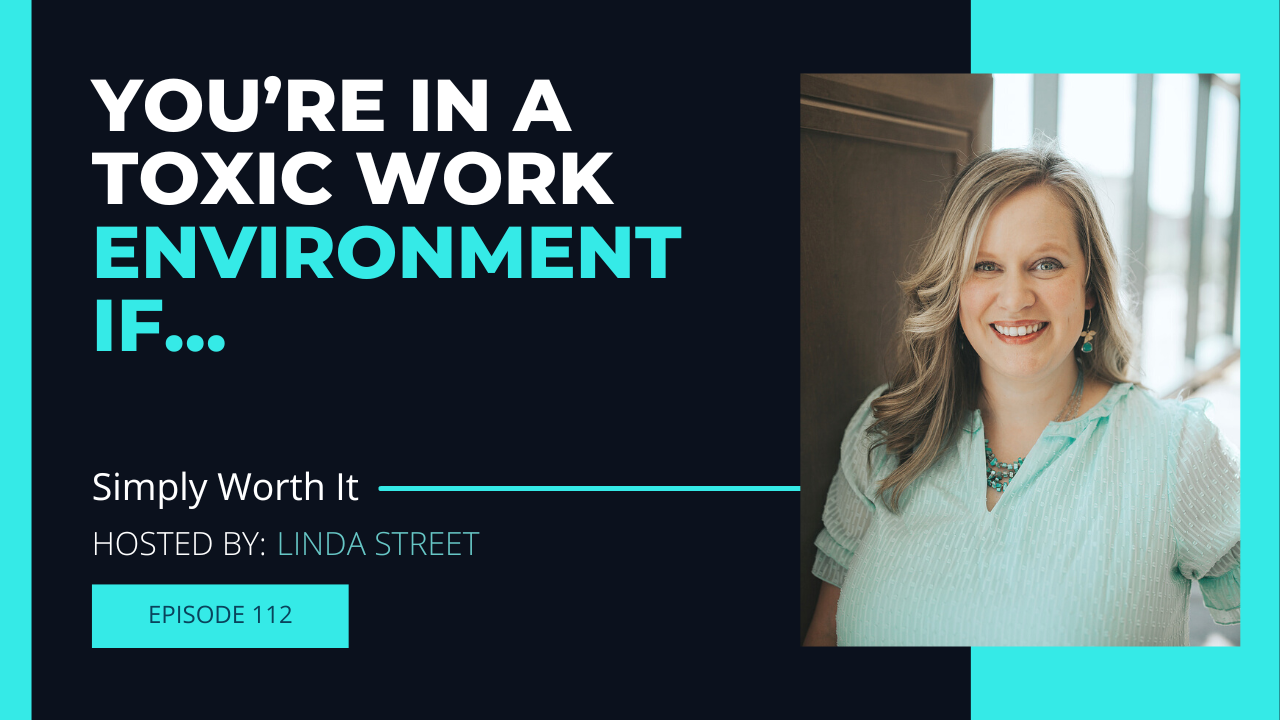
The sad truth is, toxic work environments are still alive and well in medicine.
This isn’t just minor annoyances - we’re talking work cultures where something undesirable has mutated into something that’s genuinely psychologically unsafe.
As a physician, you have a human, basic right to feel safe in your job and if that’s not being served where you work, it’s time to take action.
What are the signs of a toxic environment?
How do we support people who are on the receiving end of a toxic culture?
In this episode, I’m sharing why a toxic work culture is something we shouldn’t just accept or tolerate.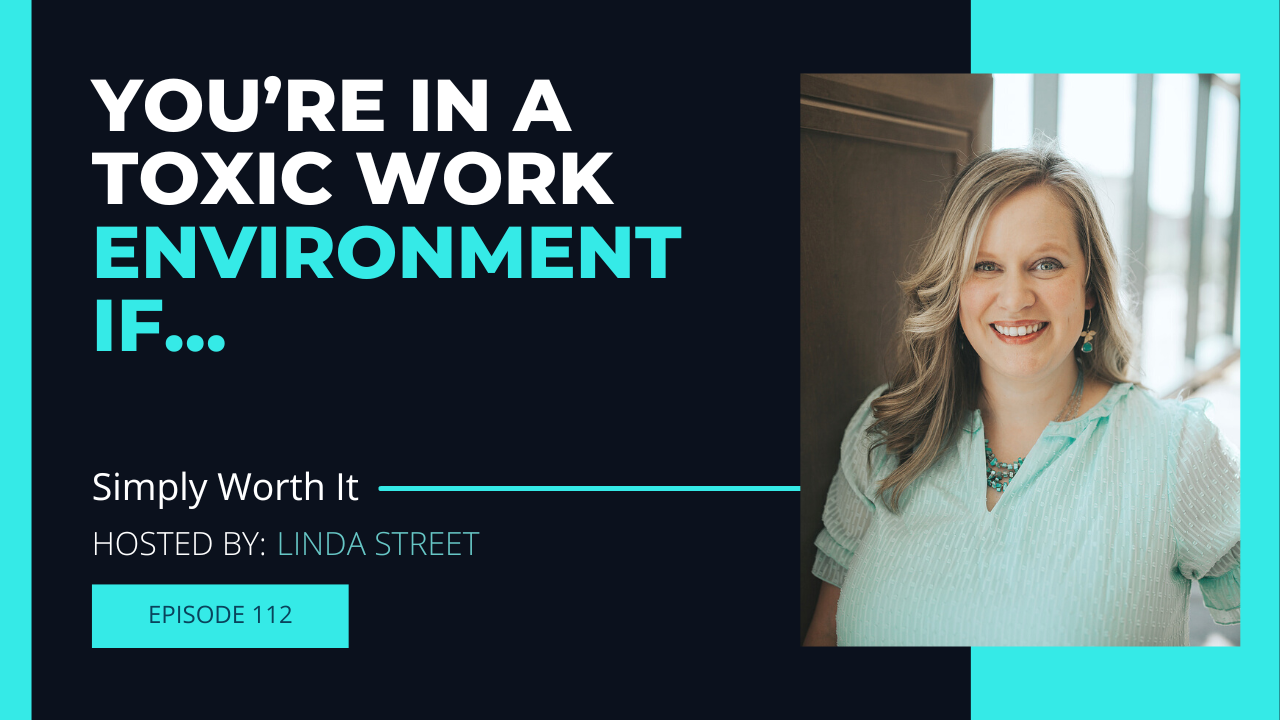
Three Things You’ll Learn In This Episode
- Understanding vs. standing under
When someone is having a bad experience at work, how do we hold space for them, even if we don’t share their experience? - Work environment red flags
From bullying and belittling to gaslighting, how can we tell that we’re in a psychologically unsafe environment? - How to know it’s time to exit
We usually look out for big...
3 Ways to Optimize Your Happiness At Work
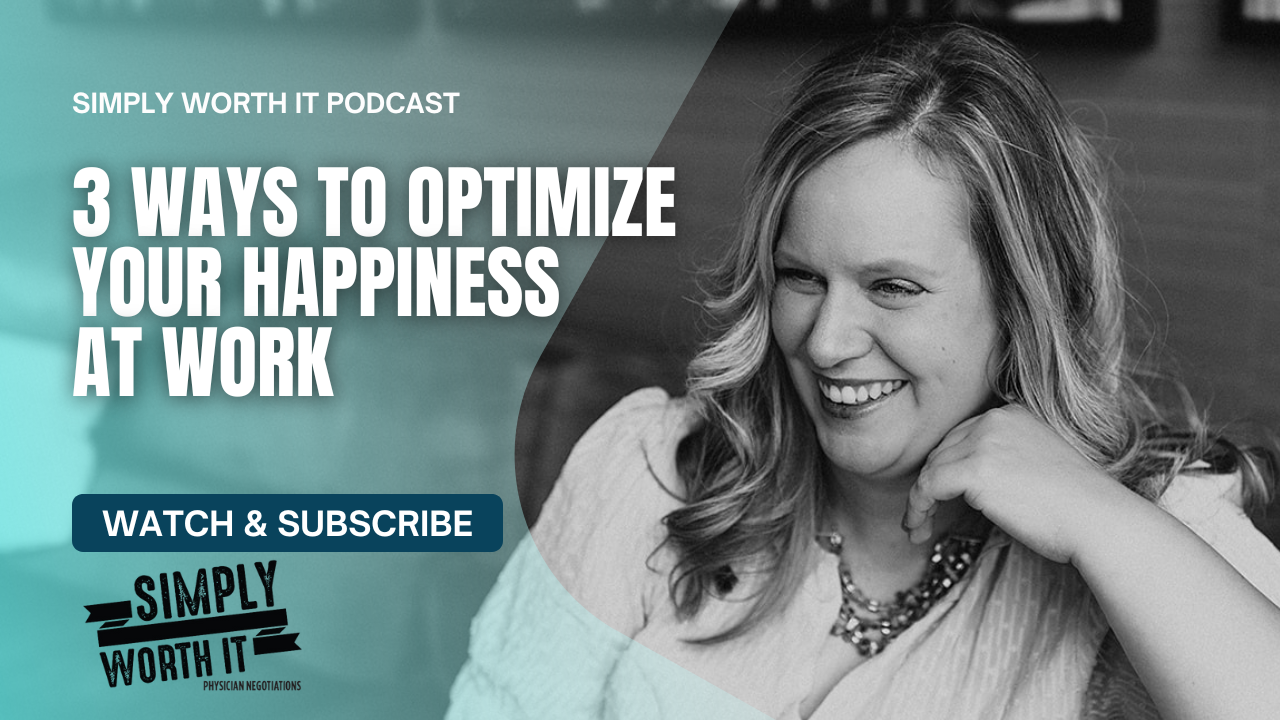
For many physicians, the idea of being happy in your job feels like just that - an unrealistic idea or pipe dream, but it doesn’t have to be.
There are things we can do to foster happiness at work so that showing up every day doesn’t feel like diving into a wormhole of depression and job dissatisfaction.
In this episode, I share the 3 pillars of job satisfaction and how to set them up for yourself.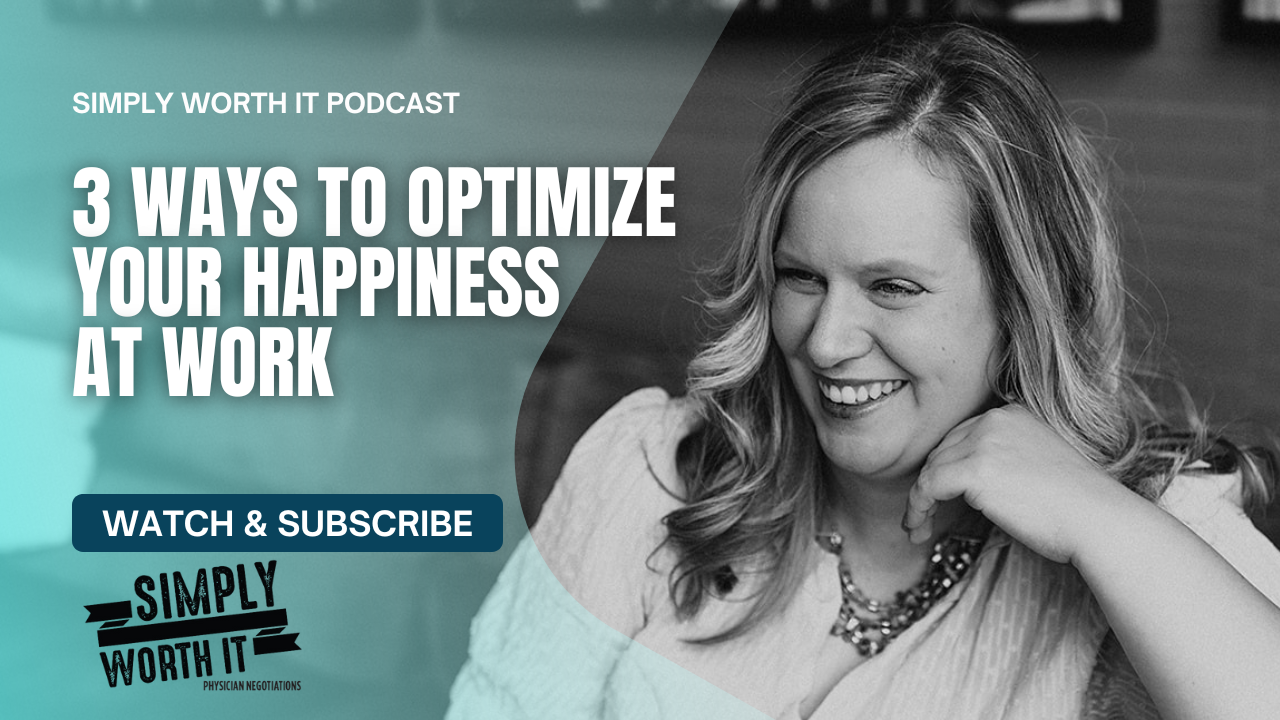
Three Things You’ll Learn In This Episode
- The power of community
People are a critical piece of how we feel at work - how do we find and even create opportunities for connection? - How to safeguard your values
How do we do our due diligence to suss out the values of an organization on the front end? - Why happiness at work is so critical
With all the mental health struggles physicians are facing, how do we make the field a better space?
If you haven’t already, please comment in support of the proposed FTC ban
on non-compete clauses. We have some copy-and-paste templates to help
if yo...
You Agreed, But It's Not Reflected In Your Contract: What Now?
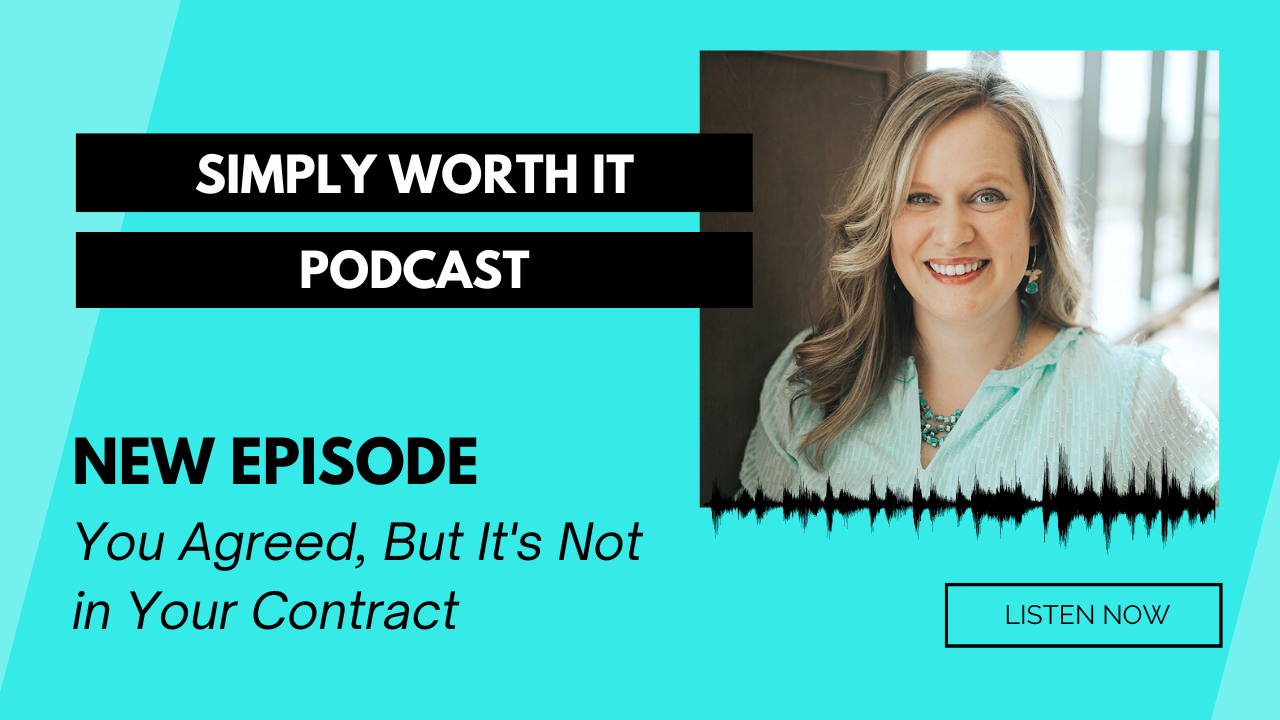
Your negotiation went well.
You came to an agreement that reflects your worth, but then you get your contract and those stipulations are absent.
What steps can you take if the conversation and the contract end up being two different things?
This happens a lot more often than you think, and whether it’s a simple case of miscommunication or something far more concerning, you control what happens next.
How do we bring the issue up with our employers?
In this episode, I’m sharing what we can do when the things we agreed to aren’t spelled out in our final contracts.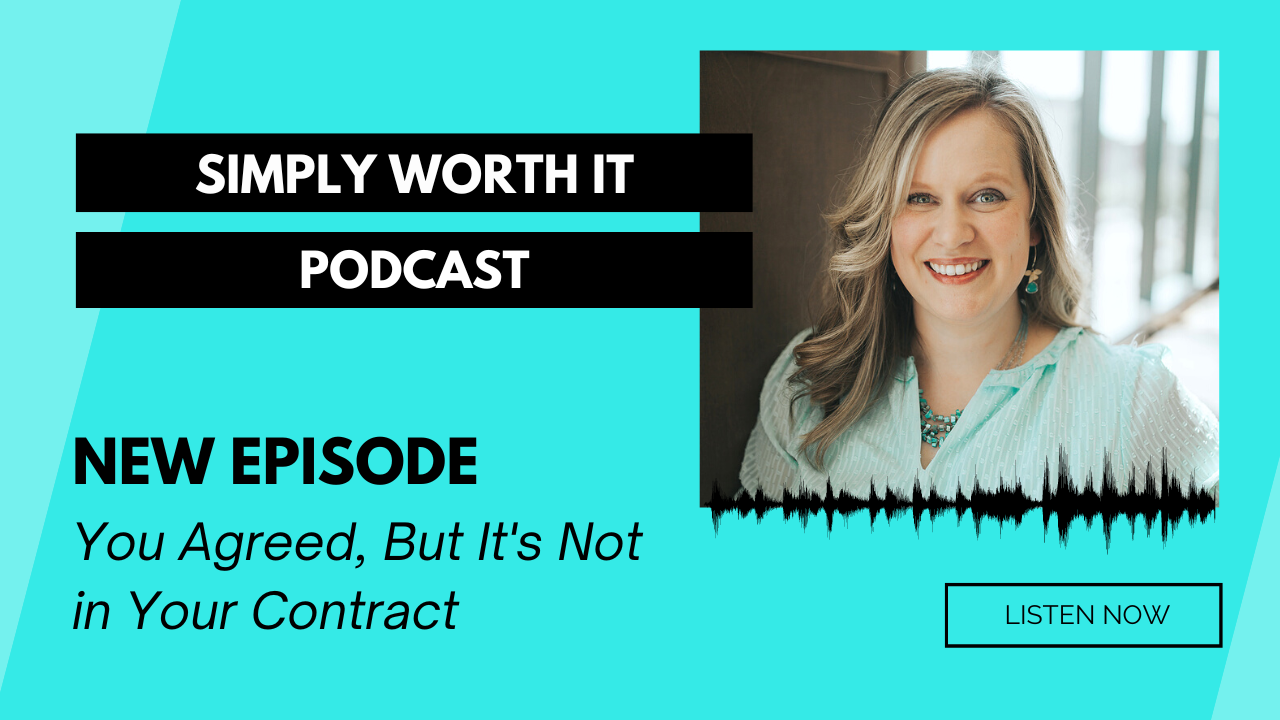
Three Things You’ll Learn In This Episode
- The next best thing to a contract stipulation
If the contract doesn’t reflect what was agreed upon, can an email suffice? - Deal breaker or no deal breaker
If it’s not reflected in the contract, how do we know it might be time to walk? - Innocent oversight vs. a targeted slight
Mistakes can be made in our contracts, so how do we approach the issue with a benign sense of curiosity before w...
Assembling Your Negotiation Dream Team: 3 People You Need in Your Corner
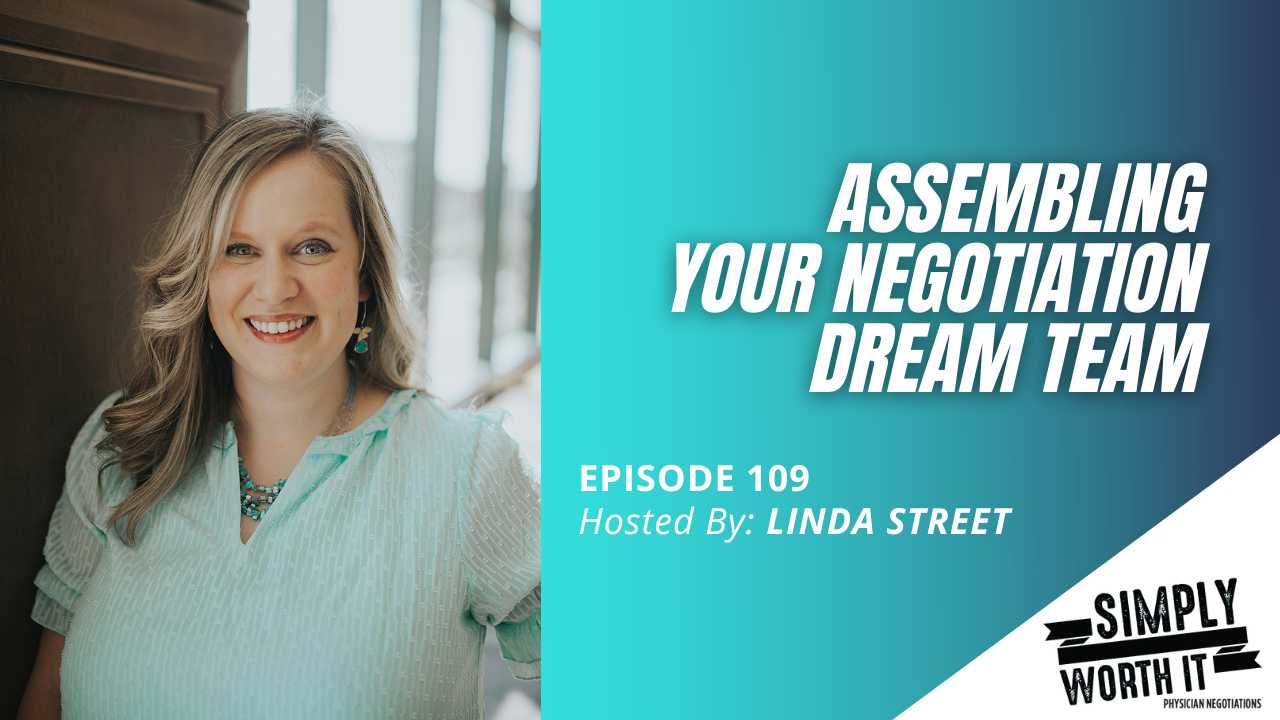
Just like building a home, successfully negotiating your contract is not a solo effort.
You need a team of key players to cheer you on and help you navigate the process with your sanity intact.
The earlier in the process you assemble the team, the smoother your negotiation will be and like your dream home, the happier you’ll be with the end result.
In this episode, I’m going to share the key team players you want to collect before you begin any negotiation.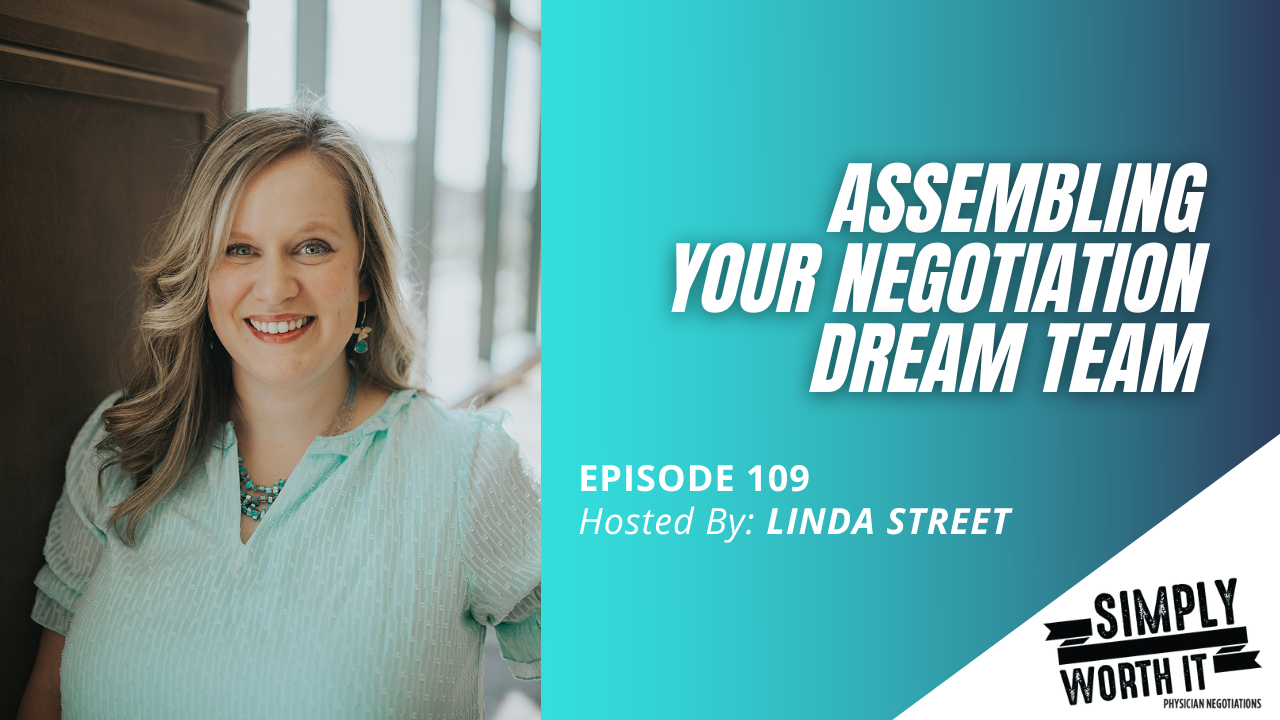
Three Things You’ll Learn In This Episode
- The first team player you need to have
It’s important to have a key decision-maker in your corner, but why do we need other people on the team? - Why you need a team player who sees the blind spots
How do we find someone neutral to bounce ideas off of? - How to round out your team
Why do we need contract advice that’s relevant to our specific jobs?
If you haven’t already, please comment in support of the proposed FTC ban
on non-compete clauses. We have some copy-and-paste templates to...
Your First Contract Negotiation: How to Advocate For Yourself Effectively with Dr. Tonya Caylor
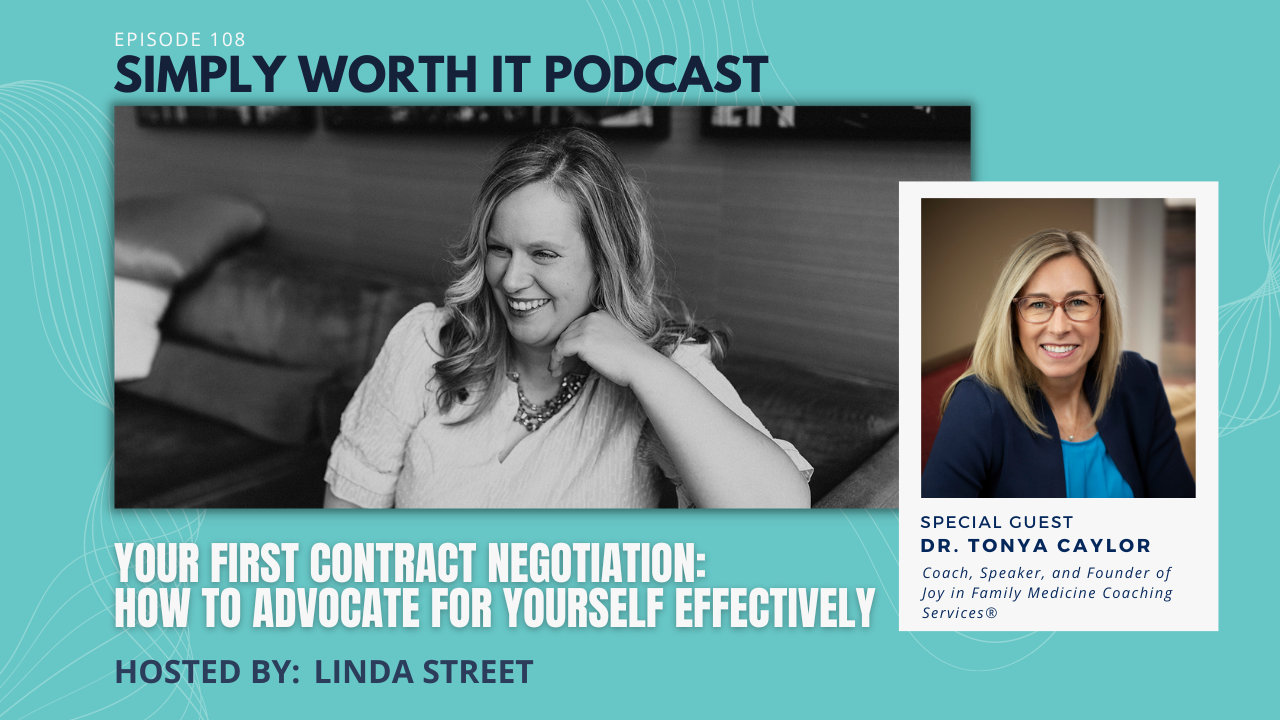
For residents making the leap into their very first job, navigating interviews, contracts and salary negotiations can feel like a minefield.
On one hand, you want to make sure the value you bring to the table is reflected, but on the other hand, you’re socialized to take whatever’s offered because of your inexperience.
How do we make sure we’re not short-changing ourselves at the negotiating table?
What are some of the unique pieces of the contract we need to consider?
In this episode, I’m joined by Academic Physician Coach, speaker, and founder of Joy in Family Medicine Coaching Services®, Dr. Tonya Caylor.
We talk about setting yourself up for success in your first negotiation.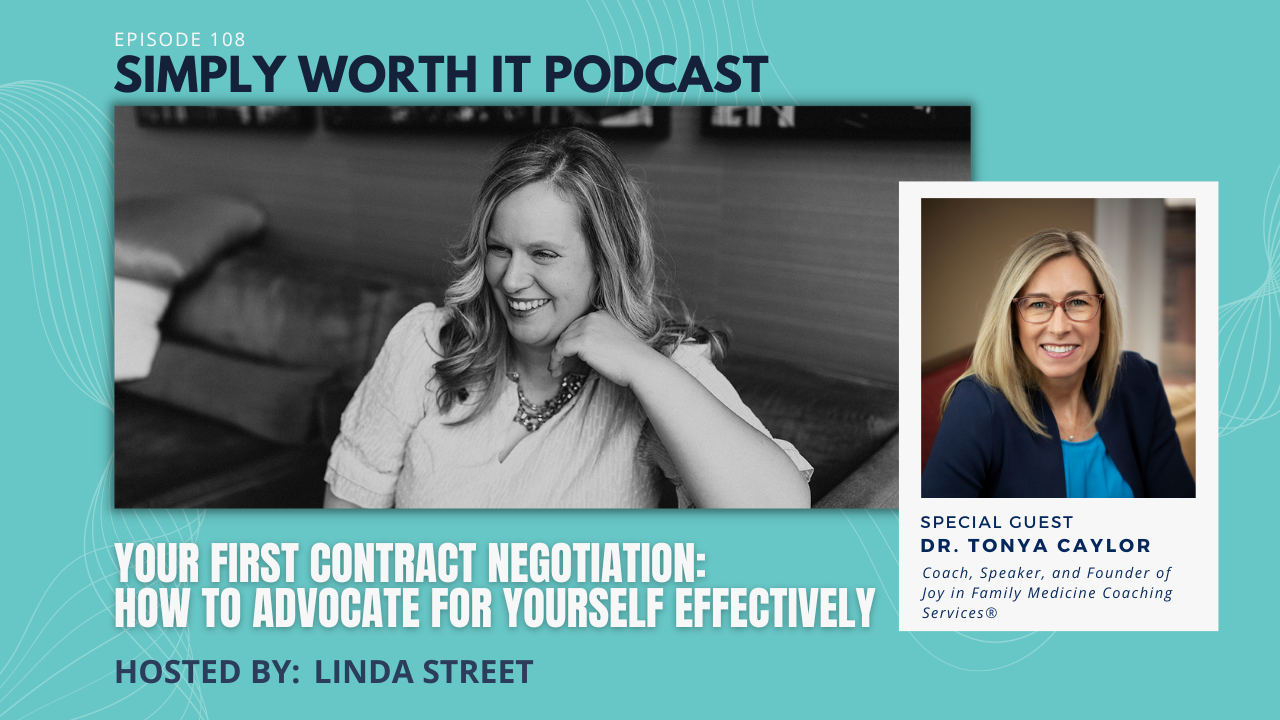
Three Things You’ll Learn In This Episode
- Why you shouldn’t use your newness to discount yourself
When our employers say there’s no room for more money in our packages, should we advocate for ourselves or just accept what’s on the table? - What we have to consider about sign-on and moving bonuses
How do we ins...
The Forces of Fairness in a Negotiation & How to Make Them Work for You
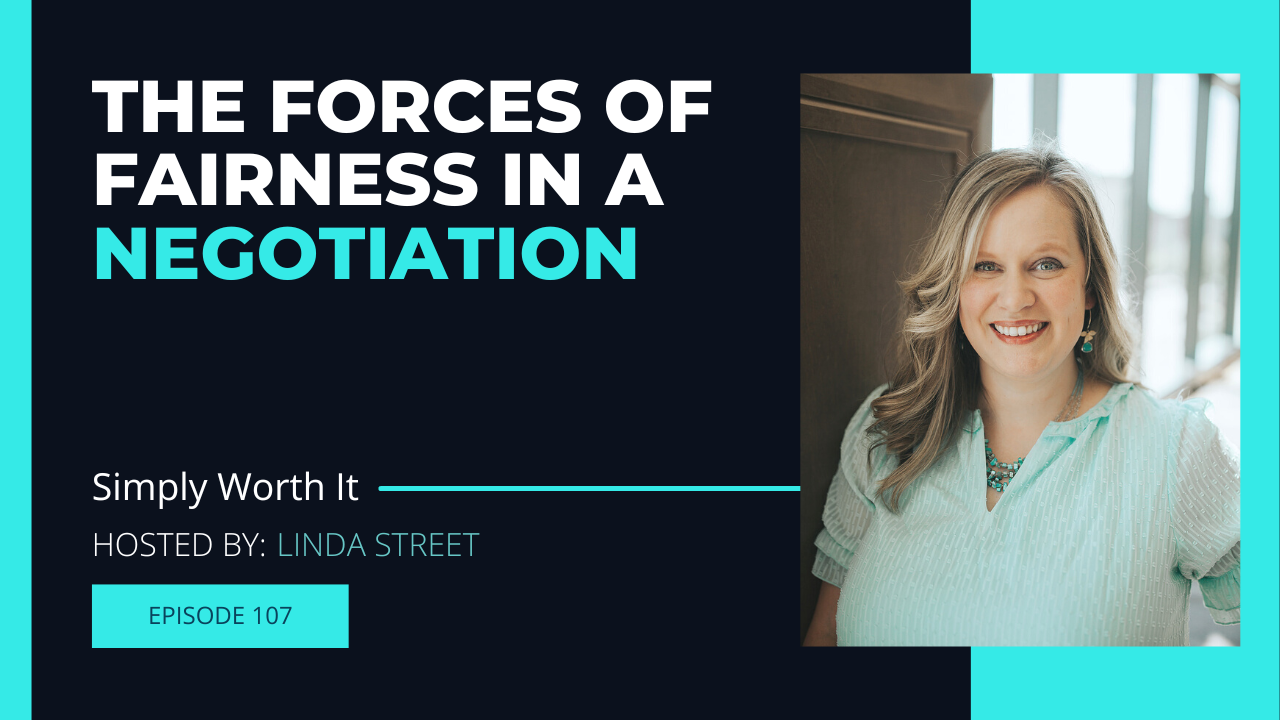
In any negotiation, fairness is usually a front-of-mind concept - in fact, it’s often the measure with which we judge the success of the entire process.
But here’s the challenge, fairness isn’t as simple as a singular yardstick.
It’s actually made up of multiple facets that sometimes conflict with each other.
With that in mind, how do we take fairness to the negotiating table and make sure we’re ticking the boxes that matter?
In this episode, I share how to approach the concept of fairness so that you walk into the negotiation with a tangible way to achieve it.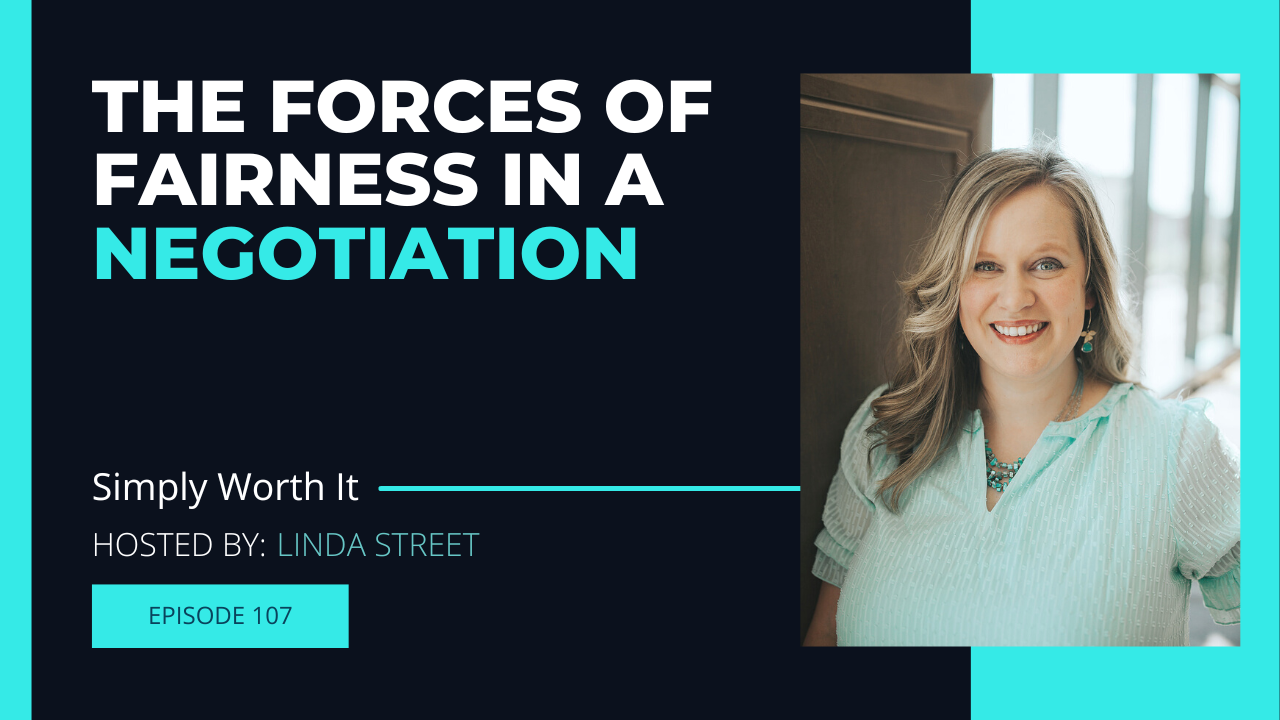
Three Things You’ll Learn In This Episode
- How to determine what a fair offer looks like for you
How do you move forward when fairness has multiple norms that often conflict with one another? - The interplay between equality and equity
Is it possible to get something that’s equal to everyone else while also taking previous barriers into account? - How to make fairness a priority for your employer
Can we have fairness when the othe...
Stop Using Grit Against Yourself: How to Quit When the Job Becomes a Dealbreaker
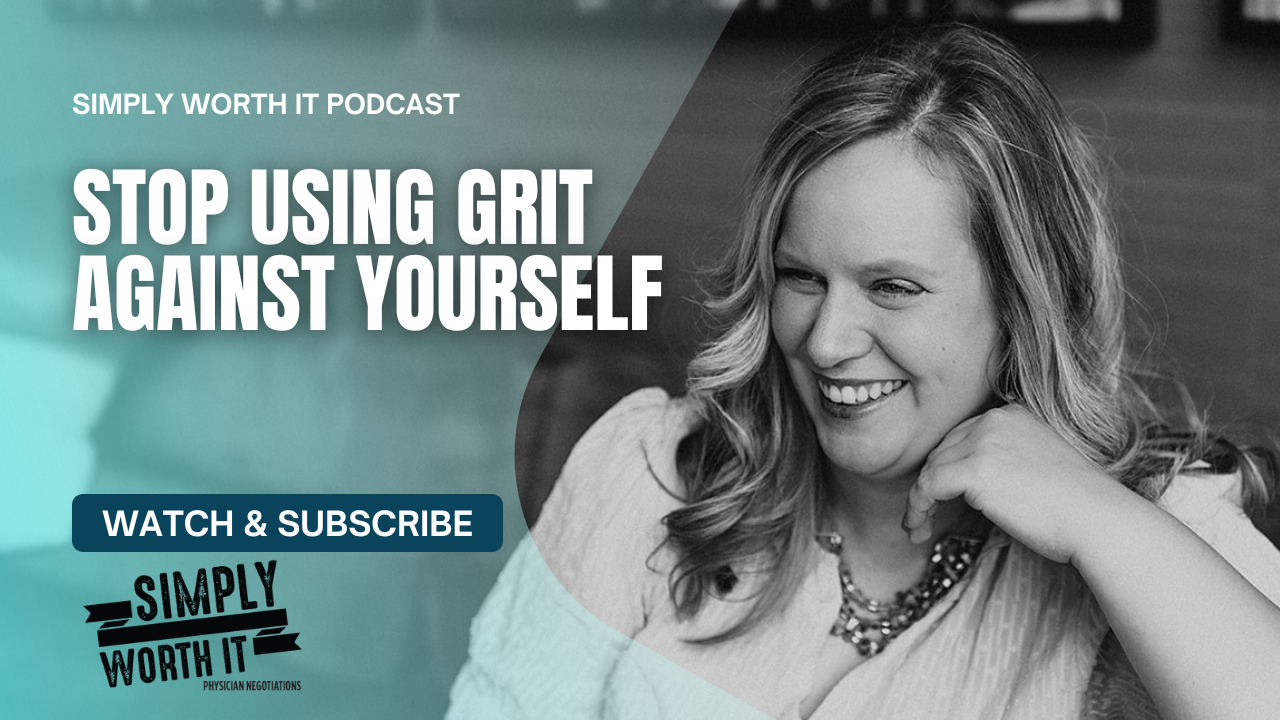
Getting a job that serves us often requires us to tweak or modify our current work environment, but what if the situation is too far gone and too toxic to salvage?
Many of us are guilty of staying in negative situations a lot longer than we should, damaging not only our careers but also our health.
We’re typically more biased towards staying with the devil we know, even if it destroys us, so how do we combat it?
In this episode, I’m sharing how to know when quitting is the only option, and why severing the tie sooner than later saves us a ton of pain and anguish.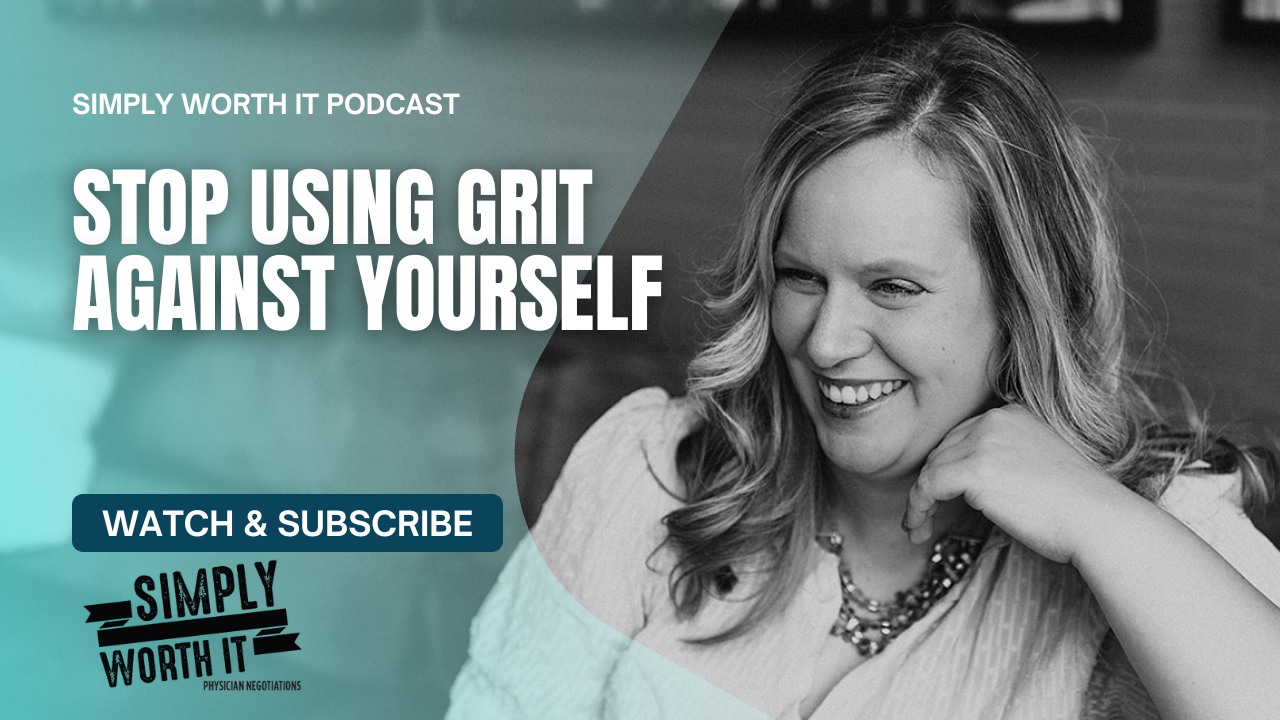
Three Things You’ll Learn In This Episode
- Comfort vs. predictability
What makes us hesitant to change jobs even when we know it’s harming us? - Ways to safeguard against staying too long in a bad situation
How do we create a “prenup” with our jobs and insulate ourselves from staying longer than we should? - The perils of grit
Resilience is something physicians are known and praised for, but how does it hurt us in our jobs?
The End of Non-Compete Clauses? Removing This Barrier Would be a Massive Win
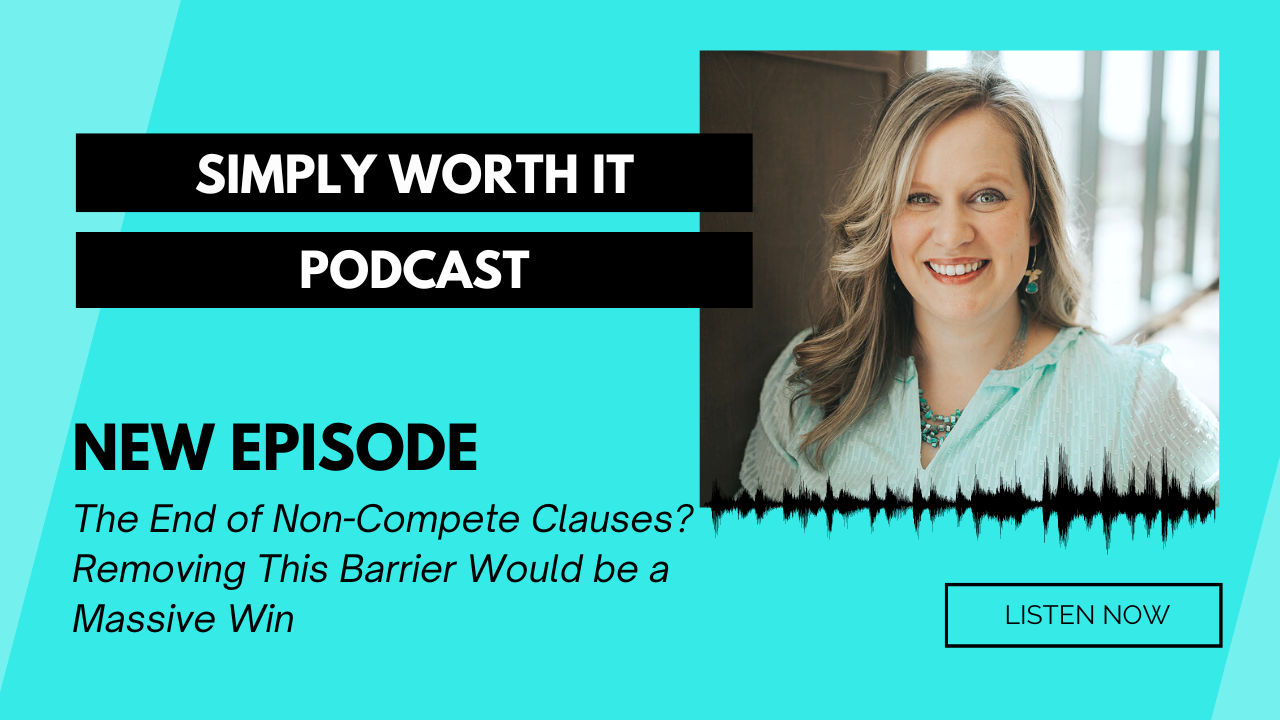
Non-compete clauses have never been beneficial to physicians.
They are notoriously difficult to negotiate out of.
They keep us trapped in toxic work cultures, and they back us into career moves that can be harmful.
I’d also argue that non-competes also harm employers and the economy as a whole.
Removing this barrier would be highly beneficial to a lot of people, so I'm encouraged by the FTC’s proposal to end non-compete clauses.
What would changing this rule mean for physicians?
In this episode, I share my thoughts on the proposal to ban non-competes.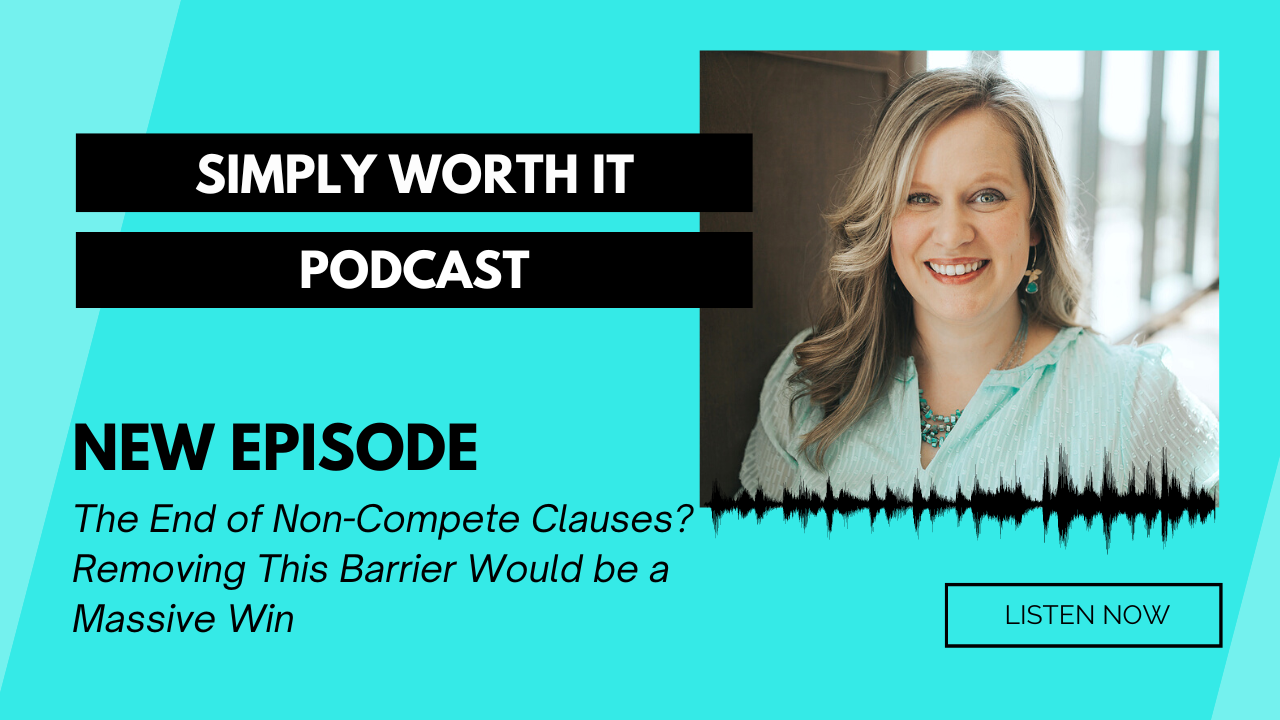
Three Things You’ll Learn In This Episode
- The problem with handcuffing people to the job
Is there a better and more humane way to increase retention and encourage physicians to be loyal? - Why physician burnout needs to be a solved at the systemic level
How do we create work cultures that support less burnout? - What happens next
Before the decision is made, what actions can we take?
Edit Out the Extra: Why 'Less' Is My Word of the Year
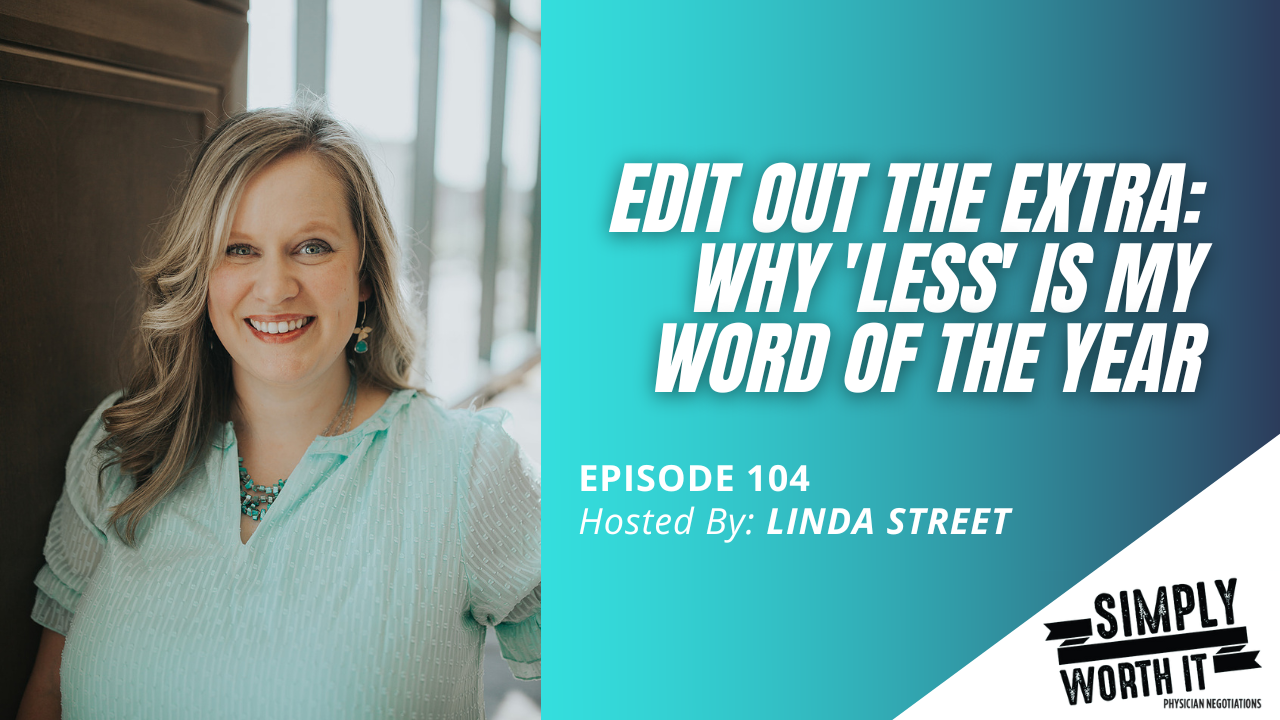
If you really think about it, most of the goals and resolutions we set at the beginning of the year are often based on having more - more money, more stuff, and more responsibilities.
In the spirit of un-goals and values, what if we set the intention to have less?
Could we achieve more by having a lot less on our plates?
There are plenty of opportunities for excess, but that could create clutter and barriers that make life more stressful.
In this episode, I’m sharing why I’m aiming for having a lot less this year.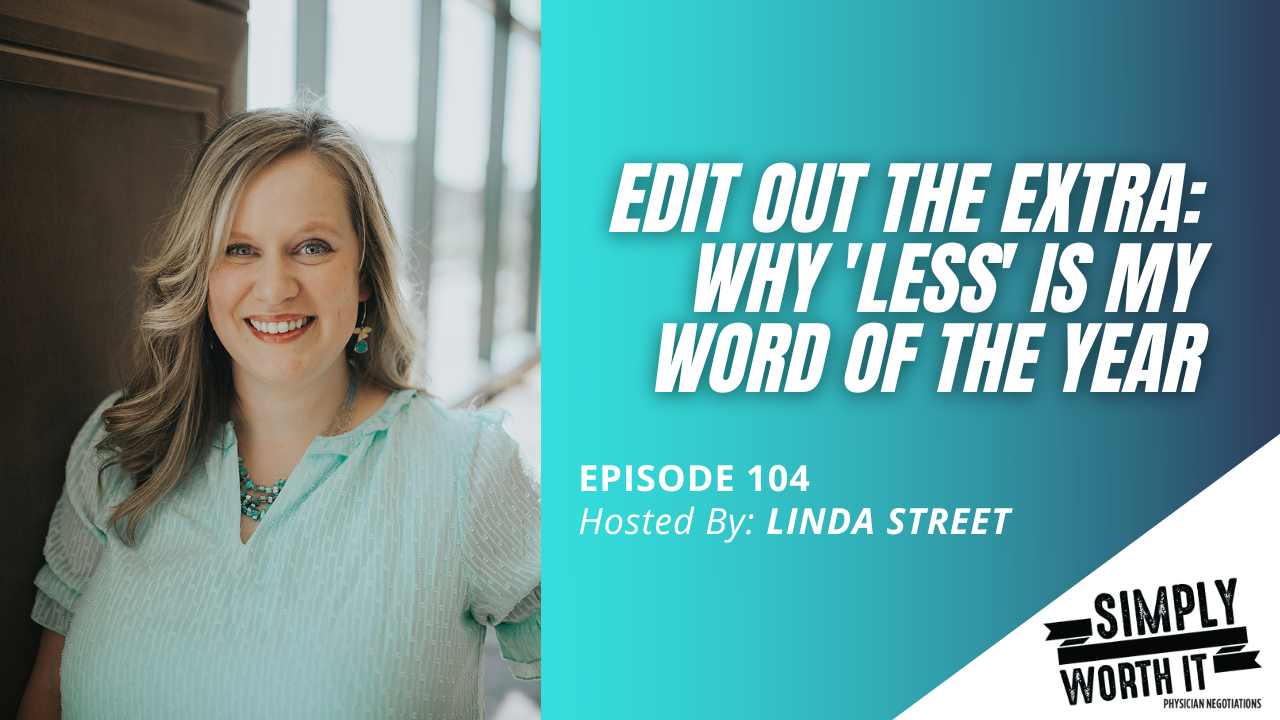
Three Things You’ll Learn In This Episode
- Why it’s so easy to accumulate more
There are plenty of opportunities for excess when you have a lot of spending power. How do you use that power wisely? - The lesson I learned recently
It’s so easy to get caught up in having more and adding to our plates, but do we have to do all the things? - How to get used to less
Many of us get a little itchy when we have extra time on our hands, how do we get ourselves to just enjoy the free time...
Job Values: How to Identify the Intangibles that Preserve Your Happiness at Work
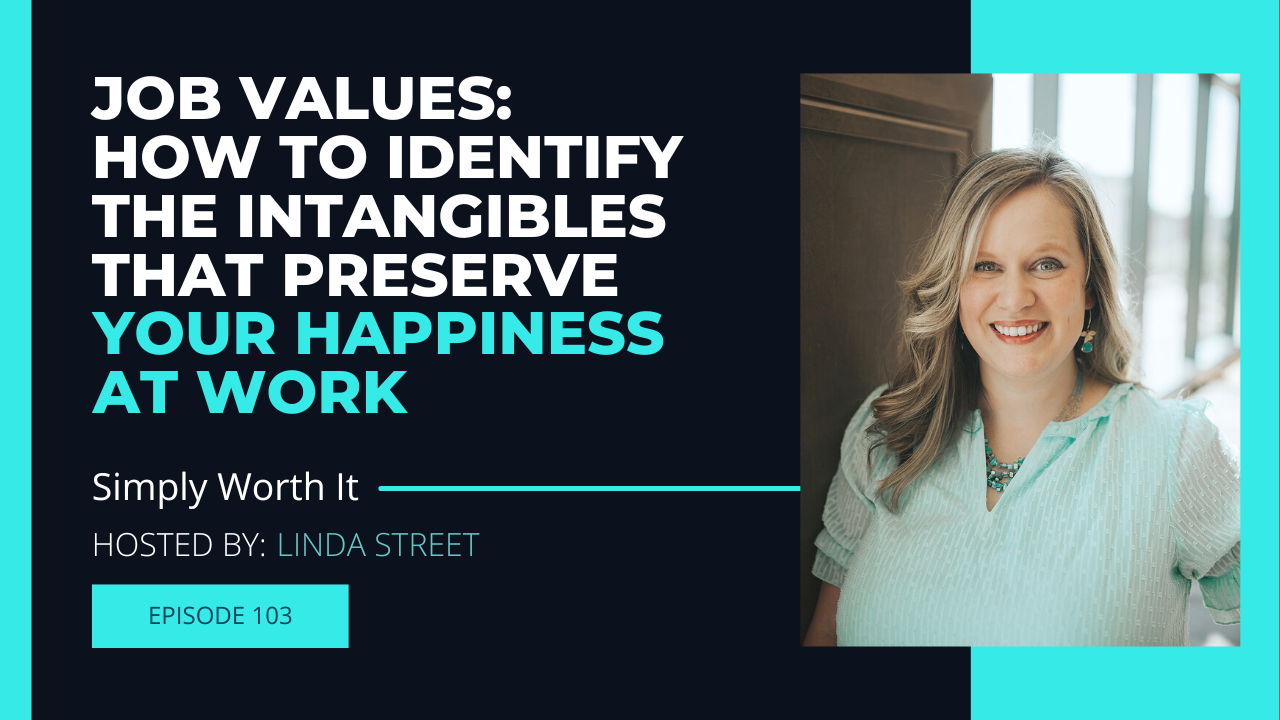
When we talk about finding that right-fit job, the checklist is usually centered on salary, benefits, schedule, and the tangible things that ensure that it reflects our worth.
The less tangible things also require some thought too, and they can have a bigger impact on how well we thrive in our roles.
Enjoying your job and feeling like your values are being met preserves our happiness and our longevity in medicine, so it’s worth pinpointing them.
How do we identify the values that matter most to us and apply them to our current or next jobs?
In this episode, I talk about how to uncover what truly makes you happy at work.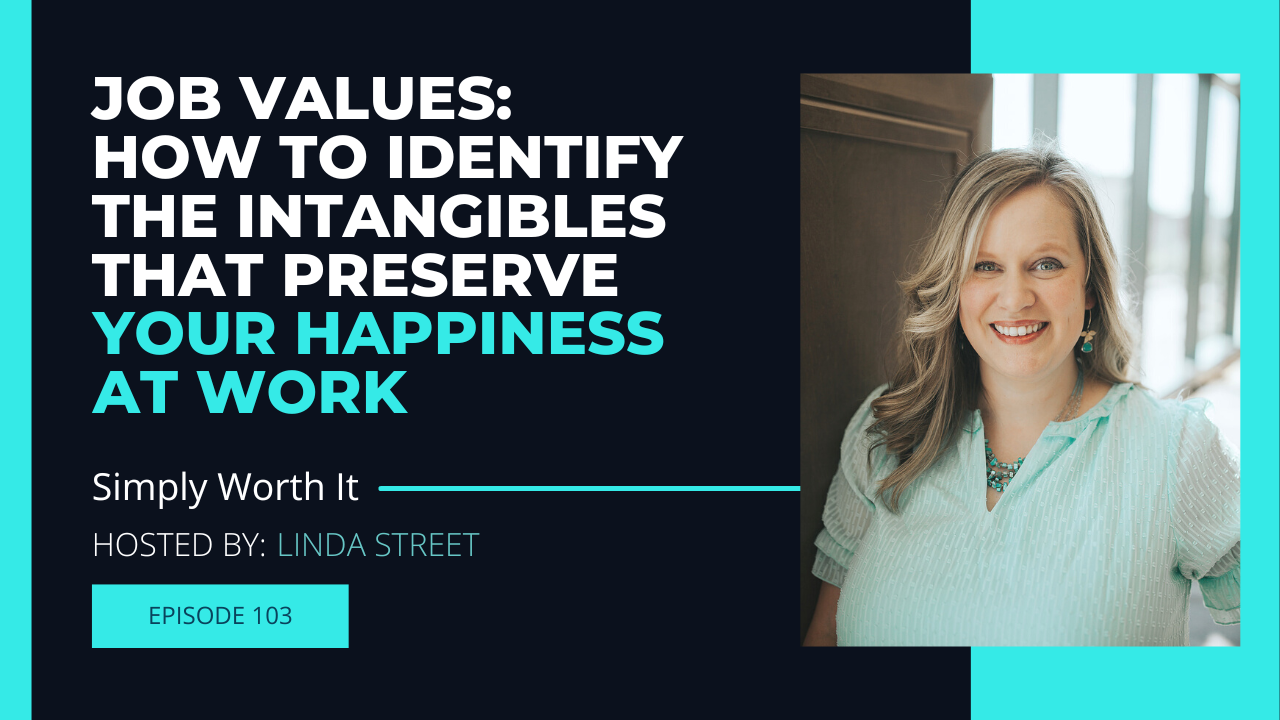
Three Things You’ll Learn In This Episode
- Why our values can help us keep burnout at bay
Can being in alignment make us more productive and purposeful at work? - The win-win of focusing on your values
Why is it so much easier to go above and beyond in our work when it aligns with what makes us happy? - How to apply your values to your current job or job search
Can you us...


